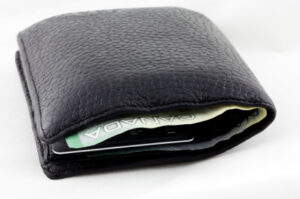Fixed-rate Mortgage Penalties: Paging Mr. Flaherty
November 17, 2010Title Insurance: How It Works and Why You Should Buy It
December 1, 2010Borrowers who make financing flexibility their highest priority often wonder whether it is better to choose an open or a closed mortgage.
This diverse group of borrowers includes people who might want to sell their house, those considering a refinancing to fund a r enovation before the end of their mortgage term, and anyone who plans to make large additional lump-sum payments on a regular basis.
enovation before the end of their mortgage term, and anyone who plans to make large additional lump-sum payments on a regular basis.
An open mortgage can be paid off in full, at any time, with no penalty, while a closed mortgage allows only limited lump-sum prepayments and includes a penalty if it is repaid in full before the end of its term. For borrowers who fear these penalties, an open mortgage is tempting. But is it the best option?
Surprisingly, in most cases a closed variable-rate mortgage is still a cheaper alternative because it comes with a much lower rate, has only a small payout penalty, and it typically comes with a lump-sum prepayment allowance of up to 20% of your original mortgage balance each year (which you can use to lower your penalty, as I explain in more detail below). Bluntly put, using an open product, whether an open variable-rate mortgage or a line-of-credit loan, for anything other than very short-term financing will cost you a surprising amount of extra money.
To illustrate, let’s look at the numbers to see why a closed-variable rate mortgage quickly becomes the cheaper option:
Today’s typical mortgage market rates are as follows:
Five-year closed variable-rate = 3.10%
Five-year open variable-rate = 4.75%
Home-equity line-of-credit (HELOC) rate from a Big Five bank = 4.45%
The annual interest cost on a $300,000 mortgage (with a 25-year amortization) using the rates above is as follows:
Five-year closed variable-rate = $9,075
Five-year open variable-rate = $13,895
HELOC loan from a Big Five bank = $13,020
The penalty to fully discharge a closed variable-rate mortgage before the end of its term is three-months interest on your current mortgage balance (note that lenders often use their current prime rate for this penalty calculation, even though your actual interest rate would normally be discounted below prime). On a $300,000 mortgage balance, a three-month interest penalty calculated using today’s current prime rate of 3.95% works out to $2,963.
Now that we have the key information, let’s assume that one year from today your ship comes in and you no longer need mortgage financing. Let’s look at what the combined interest and penalty costs of the three loans above would work out to on that very happy day.
The closed variable will cost you $9,075 in interest plus a $2,963 penalty, totaling $12,038. While neither the open variable nor the HELOC include a payout penalty, their higher rates will have cost you $13,895 and $13,020 in interest respectively. That makes the closed variable at about $1,000 cheaper than the next best alternative, and that’s without using any of your lump-sum prepayment allowance to pay down the mortgage just prior to discharge.
Now let’s expand on that last point to highlight an easy way to reduce your penalty if you have access to some additional short-term cash.
A good closed variable-rate mortgage will allow you to make extra payments of up to 20% of your original balance each year, which on a $300,000 mortgage works out to an annual prepayment allowance of $60,000. Any independent mortgage planner worth their salt will advise you to maximize your lump-sum payment allowance on your last scheduled payment date (just before discharging your mortgage). Doing so will save the borrower in this example another $593 (which would then make the closed variable $1,575 cheaper than the next best option).
you to maximize your lump-sum payment allowance on your last scheduled payment date (just before discharging your mortgage). Doing so will save the borrower in this example another $593 (which would then make the closed variable $1,575 cheaper than the next best option).
Now that we have seen that the closed variable-rate mortgage costs less than the available open-mortgage alternatives even if you break it after twelve months, let’s focus on the exact point when the closed variable becomes the cheaper option.
At today’s rates, financing with the closed variable becomes slightly cheaper than the HELOC option by month nine, even with the the full payout penalty included. Better still, the closed variable’s lower rate also ensures that your comparative saving will continue to grow over time. Staying with the example above, if you pay the mortgage out after four years, the closed variable will have then saved you $12,165 vs. the cheapest open-mortgage alternative.
So why would any borrowers opt for an open-variable mortgage or a line-of-credit loan?
One explanation is that they assume that an early payout penalty on all closed mortgages will be prohibitively high, as it often is with fixed-rate mortgages that invoke the dreaded interest-rate differential penalty calculation. While this misapprehension is understandable, given that there are huge differences in the ways that lenders calculate their fixed-rate mortgage penalties, the fact is that closed variable-rate mortgage penalties are almost always limited to three months interest.
Another explanation is that some people are so turned off by the word “penalty” that they want to avoid paying one at all costs – even if the alternative is more expensive. That of course, is an expensive misjudgement. When you think about it, an open-variable mortgage and a line-of-credit loan are effectively charging you a penalty anyway, in the form of higher interest rates – and that’s whether you pay out early or not.
The bottom line is that in most cases, borrowers who want short-term financing will still save money by choosing a closed variable-rate  mortgage and paying a penalty if they pay out early. The key is to work with an experienced independent mortgage broker who will analyze your specific circumstances and who will help you choose a closed variable with the right combination of features (which is best done by independent planners who have access to a wide variety of lenders).
mortgage and paying a penalty if they pay out early. The key is to work with an experienced independent mortgage broker who will analyze your specific circumstances and who will help you choose a closed variable with the right combination of features (which is best done by independent planners who have access to a wide variety of lenders).
Mortgages are a lot more complicated than they used to be and this post is just another illustration of why partnering with a knowledgeable mortgage expert is the best way to keep your money where it belongs: in your wallet.








20 Comments
Thanks you for this information. I am about to buy my first home and your comments were invaluable!
Thanks for taking the time to provide feedback Sydney.
Best,
Dave
I have a mortgage renewal approaching and was happy to come across your article. It gave me something to think about, and will probably help me to save some money.
Thanks for your note Jim. Glad you found value in this post.
Best,
Dave
Thank you for taking the time to inform folks. As we are needing to renew, however are wanting to sell soon, our bank suggested the variable closed. Skeptical until I read this article with the excellent examples. Cheers!
Thanks a lot ..now with my renewal close at hand I can rest easy with the decision making process in which direction to go for the next 5years
Thank you! Your detailed information was extremely educational
Can anyone get a 10 year closed variable or are they always in 5 year increments to get the best deal?
Hi Murray,
I am not aware of any ten-year variable-rate mortgages. Typically you would be choosing between three-year and five-year variable-rate options.
Best,
Dave
Thank you so much for the article, this helps me decided on closed term for my rental property. Muchly appreciated
Renewal coming up and was surprised concerning true cost of an “open” versus “closed” mortgage. Thank you!
Thanks for the informative site. I am currently looking for a mortgage for our second home. In BC. This will be very helpful when I go to the banks
well i feel like a bit of a dweeb ,,,, iv been locked in variable rate mortgage for last
10 years. and have really done well with it , but just recently i locked in for 7 years at 3.80
because im retired now and would like the predictability of it . i also went over 30 years
to get my payments down , ( im not really in a big hurry to bay it off , why should i be )
anyway,,,, vancouver bc
Hi Kelly,
Given your age and stage, buying a little “rate insurance” at this point often makes sense.
I wouldn’t have recommended the seven year, for several reasons, but fixing your rate at a payment you can afford is an inherently prudent move.
Best,
Dave
Thank you very much this is extremely well laid out and explained . I am looking into buying my first house, and this was very helpful. Thank you again.
Best Regards,
Margarita
Thank you for your note Margarita.
Best,
Dave
Hi Dave
Thanks for the interesting article. we are currently purchasing a house and have not sold our current home yet. We have been considering an open mortgage in order to allow us to pay the bulk of the mortgage off as soon as our current home sells. Is there another type of mortgage that would be suited for something as short term as 3months
Hi Heather,
Over what is likely to be a very short time period, an open mortgage is definitely the way to go.
Best,
Dave
Good morning, we have a renewal coming up in two months and plan on selling this property in 5 months, paying off the mortgage at that time what would be our best way to handle this ?
Thank you
Peter
Hi Peter,
Given the short amount of time involved, I recommend that you roll your mortgage balance into either a home-equity line-of-credit or an open mortgage.
The key is to choose an option that doesn’t involve any prepayment penalty, even if the interest rate is higher.
Best regards,
Dave